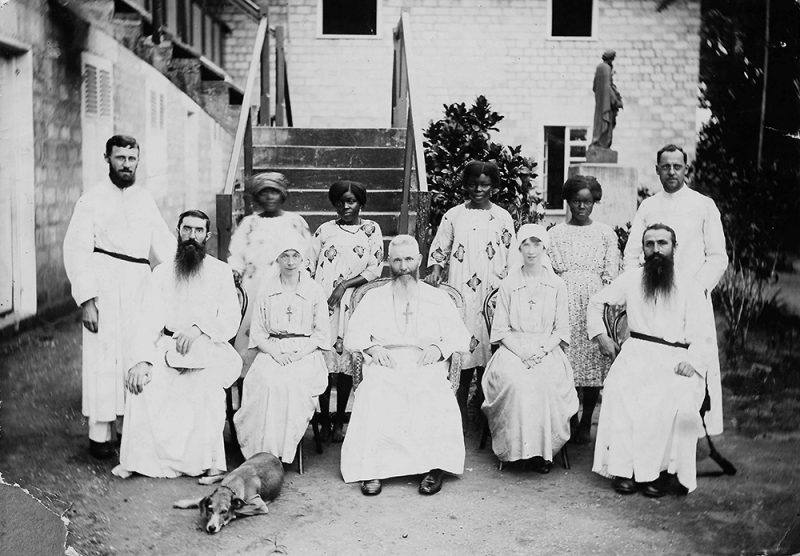After World War One, when Marie Martin returned to Ireland, she found a very different world. Ireland was in the midst of its own struggle for independent nationhood, away from colonial rule. In the Church circles there was a missionary fervour, begun in the early part of the century but released again when the war years were over. The suffragette movement in England led to the rights of women to vote and have a larger say in the political and social life of the country. Through her church and social circle, Marie Martin met and was inspired by men and women who later went on to found their own missionary societies and religious congregations.

Through her mother’s spiritual director, Fr. Ronayne, she met Fr. Ned Galvin and Fr. John Blowick who would later be the founders of the Columban Fathers, initially the Maynooth Mission to China. She met Lady Frances Moloney and for a time felt drawn to her dream for medical missionary work in China. Frances Moloney would later begin the Columban Sisters. Again through Fr. Ronayne in 1902 she met Fr. Joseph Shanahan, CSSp, who had been in Nigeria since 1902 and was home to recruit volunteers. This meeting was to change Marie’s focus from China to Africa. He must have been a persuasive talker. Fr. Shanahan had seen the good work done by Protestant women missionaries in Nigeria and was anxious that the Catholic church would also have outreach to women and girls in Nigeria. Fr. Shanahan also recruited Fr. Ronayne himself, and a newly ordained priest, Patrick Whitney who would later found St. Patrick’s Missionary Society.
Inspired by Fr. Shanahan’s words, Marie set out to do training as a midwife in Hollis Street Maternity Hospital in Dublin. There she met Agnes Ryan, a medical student, and they had similar interests. Marie graduated in April 1921 and then she received a telegram from Bishop Shanahan asking her to come urgently, if she did not mind coming alone. But she replied that she would come, but would bring a companion. Agnes Ryan left her medical studies to go to Calabar with Marie Martin. In Calabar they would be living in a convent and be known as “Sisters”. For a time, they had to limit themselves to education, not medical work as they had been led to understand, because of sensibilities to the local Protestant groups already long established. Agnes Ryan had to return to Ireland in less than six months for health reasons, and Marie Martin was often alone for long periods. It was a lonely and disappointing start, but one that taught her to cope with setbacks and prepared her for the years of waiting and searching ahead of her.
